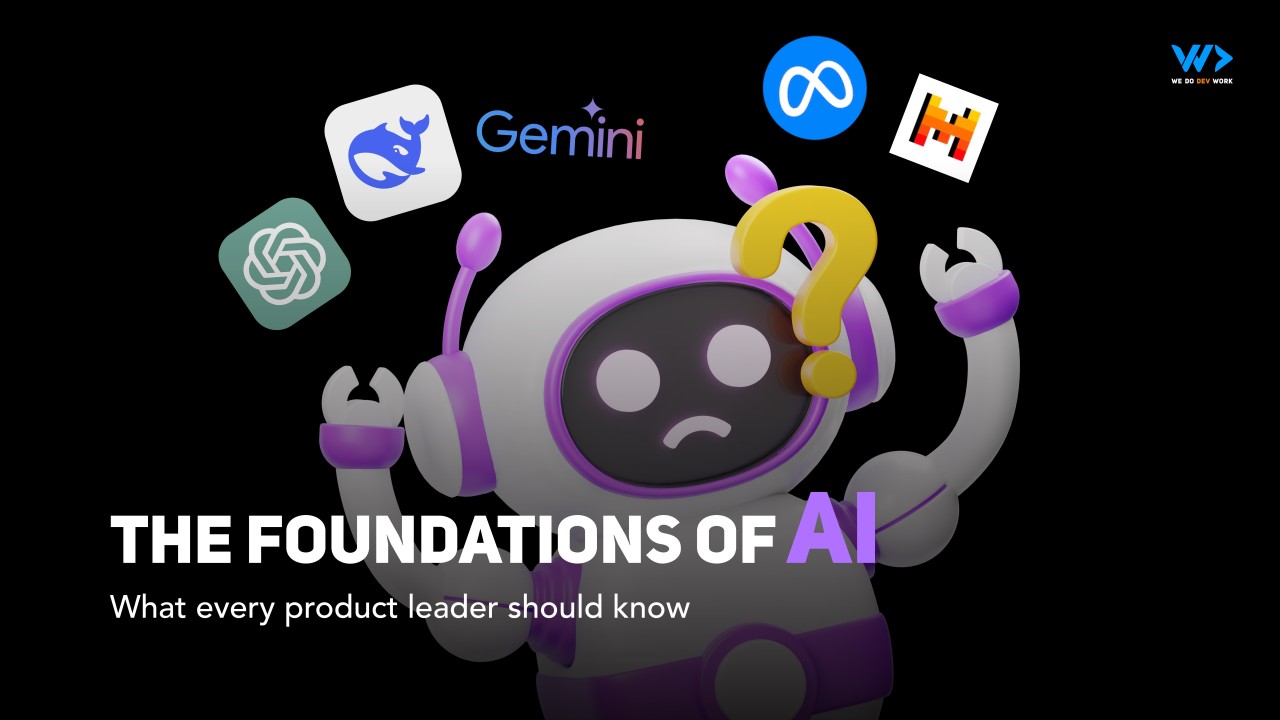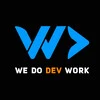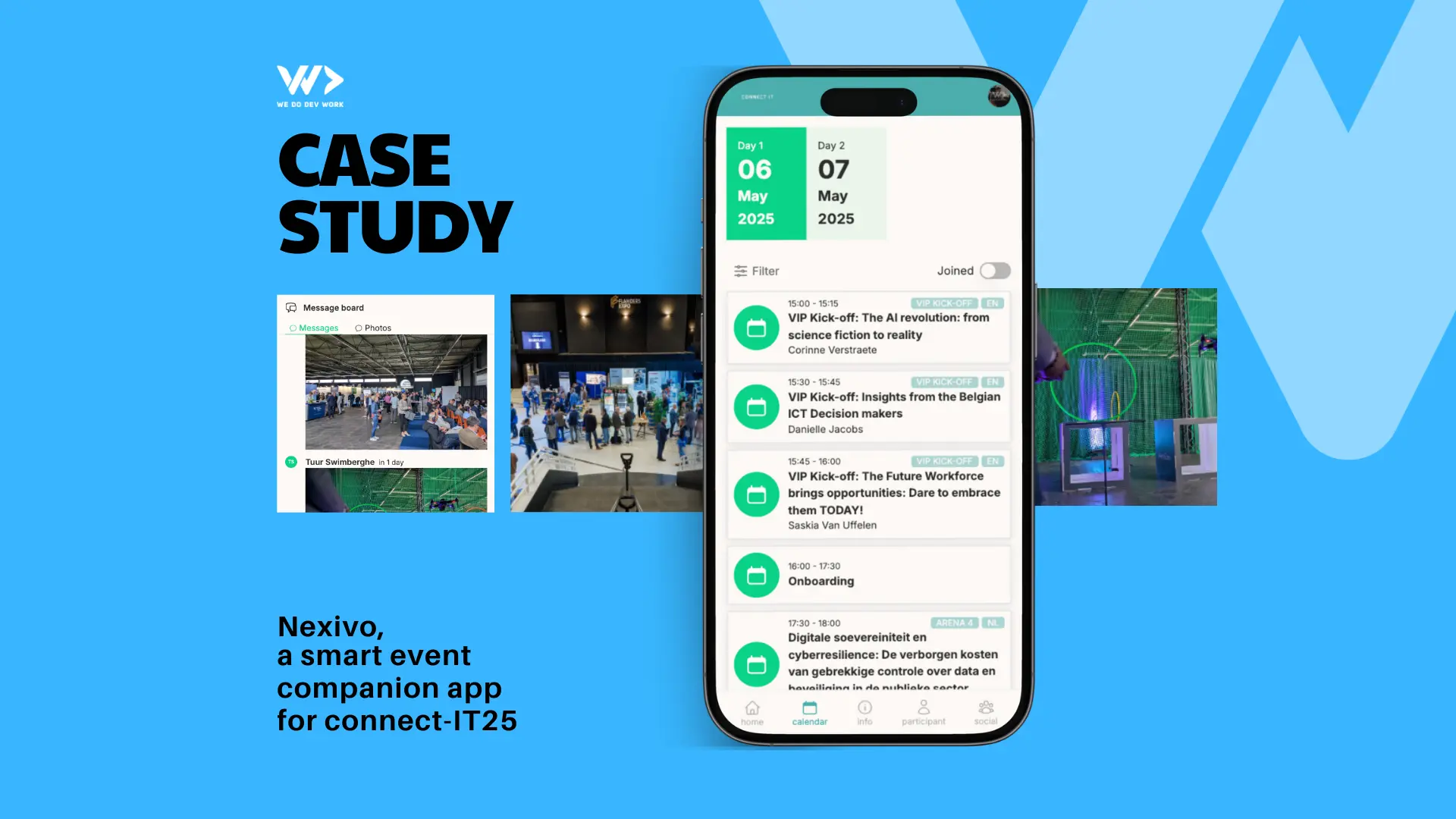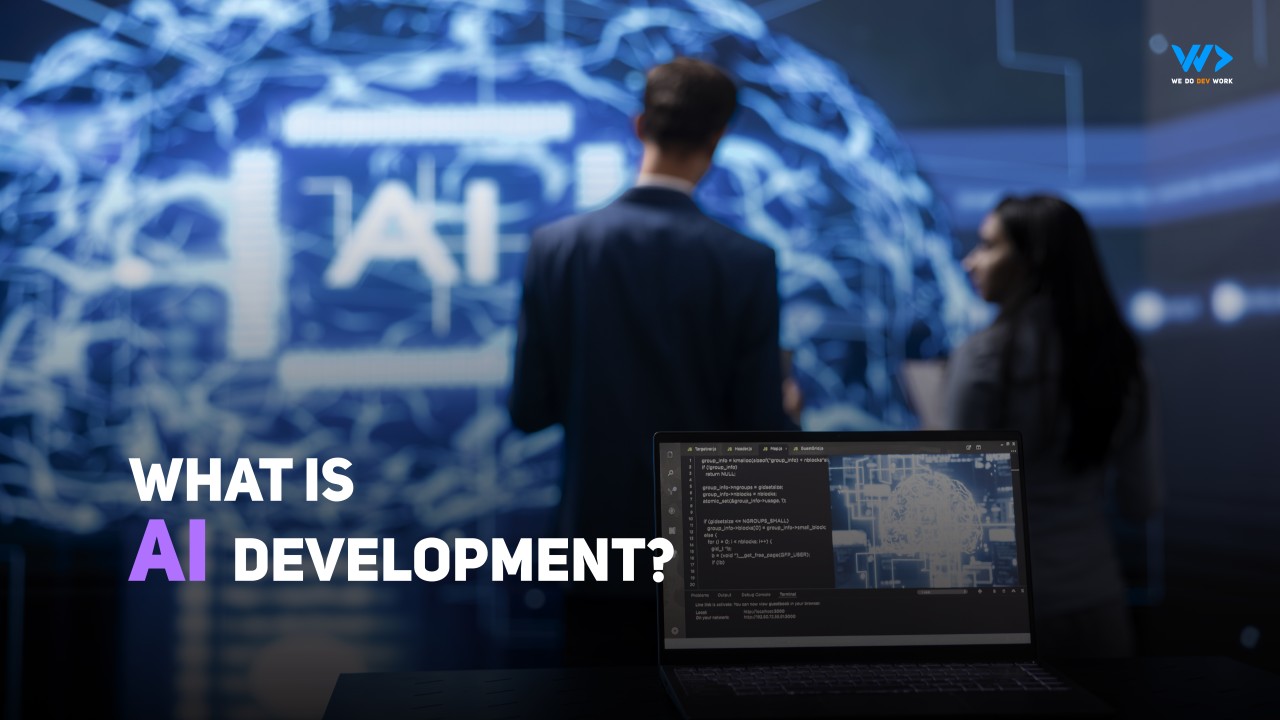
The foundations of AI: What every product leader should know

At We Do Dev Work, we're not just using AI (to write blog posts), we're building with it every day. But in a world increasingly flooded with buzzwords, it can be difficult to cut through the hype. This guide is for founders, product managers, developers and curious minds who want to understand the real building blocks of modern AI systems.
Large Language Models (LLMs)
LLMs are the engines behind tools like ChatGPT, Claude, and DeepSeek R1. They're trained on enormous datasets to generate human-like text.
Example use case: Writing assistance, summarizing reports, answering customer questions.
AI Agents
Agents are systems that use LLMs to take actions. Unlike passive chatbots, agents can reason, remember context, and chain multiple steps together to accomplish goals.
Example use case: A virtual assistant that schedules your week by reading your calendar, booking travel, and sending reminders.
Embeddings
An embedding converts text into a vector (a list of numbers) that represents its meaning. This lets computers compare meaning, not just exact words.
Example use case: Searching a knowledge base for similar documents even if different words are used.
Vector Databases
Once you have embeddings, you need a way to store and query them. That’s where vector databases like Pinecone, Weaviate, or pgvector (used in our beloved Supabase) come in.
Example use case: Letting your chatbot search internal documents to give relevant answers.
Retrieval-Augmented Generation (RAG)
RAG is a technique that retrieves relevant documents using embeddings and passes them to the LLM before generating a response.
Example use case: A customer support chatbot that pulls policies from your company handbook before replying.
Fine-Tuning
This is when you take a base LLM and retrain it on your own data. It creates a new model version specific to your use case. For example, you train LLaMa 4 to interact in your voice of tone.
Example use case: An AI trained specifically on your product manuals to give highly tailored support.
Prompt Engineering
Prompt engineering is about crafting inputs to get better outputs from an LLM. It can dramatically affect results.
Example use case: Rewriting a vague prompt like "Write about marketing" to "Write a 3-paragraph summary of modern B2B marketing trends using persuasive language."
Multimodal AI
Some AI systems can handle not just text but also images, video, or audio. Think about speech to text, text to image etc.
Example use case: An AI that analyzes screenshots, translates audio, or creates videos from text instructions.
Open Source vs. Closed Models
Open-source models (like DeepSeek, Mistral, LLaMA) can be hosted and modified. Closed models (like GPT-4 or Claude) are accessible via API but not modifiable.
Example use case: Hosting your own chatbot with full control vs. using an API from OpenAI.
Final Thought
Understanding these concepts helps you see AI not as magic, but as a toolbox. A toolbox that can help you engineer better solutions for your company or clients. The future belongs to those who can put the pieces together.
Want to build with this tech? Let’s talk. At We Do Dev Work, we help companies turn cutting-edge AI tools into practical, scalable solutions.



